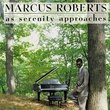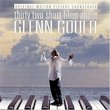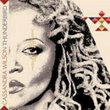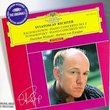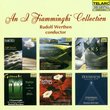| All Artists: Pyotr Il'yich Tchaikovsky, Sergey Rachmaninov, Frederic Chopin, Robert Schumann, Alexander Scriabin, Moritz Moszkowski, Vladimir Horowitz, Sergey Prokofiev, Muzio Clementi, Francis Poulenc, Domenico Scarlatti, Franz Liszt, Arturo Toscanini, Fritz Reiner, NBC Symphony Orchestra, RCA Victor Orchestra, RCA Victor Symphony Orchestra Title: Horowitz: Legendary RCA Recordings Members Wishing: 0 Total Copies: 0 Label: RCA Original Release Date: 1/1/2000 Re-Release Date: 11/4/2003 Genres: Dance & Electronic, Pop, Classical Styles: Dance Pop, Opera & Classical Vocal, Chamber Music, Forms & Genres, Concertos, Sonatas, Historical Periods, Baroque (c.1600-1750), Classical (c.1770-1830), Modern, 20th, & 21st Century, Romantic (c.1820-1910) Number of Discs: 2 SwapaCD Credits: 2 UPC: 828765605229 |
Search - Pyotr Il'yich Tchaikovsky, Sergey Rachmaninov, Frederic Chopin :: Horowitz: Legendary RCA Recordings
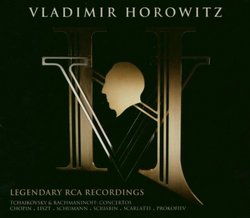 | Pyotr Il'yich Tchaikovsky, Sergey Rachmaninov, Frederic Chopin Horowitz: Legendary RCA Recordings Genres: Dance & Electronic, Pop, Classical This seems to be RCA's attempt to create the perfect Horowitz sampler. It's a pretty good try. The Tchaikovsky First Concerto, considered definitive in its day, seems more of a technical than musical accomplishment today, ... more » |
Larger Image |
CD DetailsSynopsis
Amazon.com This seems to be RCA's attempt to create the perfect Horowitz sampler. It's a pretty good try. The Tchaikovsky First Concerto, considered definitive in its day, seems more of a technical than musical accomplishment today, but there's no denying the hyper-excitement generated by Horowitz and Toscanini. The Rachmaninov Third is one of Horowitz's great accomplishments, stunningly played and superbly accompanied by Reiner. The solo disc generally plays to Horowitz's strengths, with marvellous playing of such specialties as Schumann, Scriabin, Scarlatti, Rachmaninov, Prokofiev, and Clementi. (Horowitz was the only major pianist to appreciate Clementi, bless him.) The Chopin items include an unfortunately steely-sounding Polonaise-Fantaisie(along with a beautiful Mazurka), and the Liszt Mephisto Waltz gets pretty frantic at moments. Still, hearing this set will give you a well-rounded picture of Horowitz's art. RCA's producer-engineer Jon Samuels has gotten remarkably fine results with some of these antiquities. --Leslie Gerber Similarly Requested CDs
|
CD Reviews2 Discs of Stunning Piano Playing Hank Drake | Cleveland, OH United States | 11/21/2003 (5 out of 5 stars) "RCA has been digging through their vaults during the Horowitz centennial year, and they've come up with some treasures. The Tchaikovsky First Concerto presented here, from 1941, was a best seller in its day and has retained its legendary status. Toscanini draws first class playing from his orchestra, and despite Horowitz's superstar status, it's clearly the conductor who's calling the interpretive shots. Toscanini considered his son in law to be the world's greatest pianist, and listening to this recording, it's easy to understand why. Horowitz's contribution includes stupendous, sizzling octaves, ferocious excitement, and a sensitively phrased second movement. Although there are other versions of this concerto which offer greater musical nourishment (including a Horowitz recording with Szell from 1953), this remains the most viscerally exciting Tchaikovsky First on disc. Vladimir Horowitz made three "official" recordings of Rachmaninoff's formidable Third Concerto. There are wonderful things in the 1930 recording with Coates, but that performance was severely cut. The 1978 version with Ormandy is also marvelous in its own way, but this 1951 studio recording with Reiner was Horowitz's high water mark in this piece. From the beautiful chord weighting of the first movement to the knife-edge staccato in the Finale, Horowitz is simply untouchable. There are a few cuts here, but not as severe as the version with Coates or Rachmaninoff's 1939 recording with Ormandy. Reiner is a sympathetic collaborator and draws some virtuoso playing from the pickup orchestra. The recording balance favors the piano, but Horowitz's dazzling virtuosity and clarity deserve to be highlighted. On the whole, this is my favorite Rachmaninoff Third on CD. The G major prelude, recorded in 1977, is more lovingly played here than the more casual 1986 version recorded in Moscow.Disc 2 comprises solo works with which Horowitz was identified. More of Horowitz's recordings are devoted to Chopin than any other composer. He performed the Polonaise-Fantasy in concert back when most pianists were loath to perform such an abstract work. This live 1951 performance tends to be harsh and over-driven, and lacks the poetry and cohesion of his later 1966 concert performance. Both the Mazurka and Nocturne feature flexible tempos and sensitive phrasing. Scriabin, once called the "Russian Chopin," also features prominently in Horowitz's repertoire. The four pieces here are played with the sensuality and demonism that the music demands, but seldom receives. Somewhat less successful is Liszt's Mephisto Waltz (recorded in concert in 1979): demonic it is, but with many technical baubles.Until his 1953 retirement, Horowitz was one of the foremost exponents of 20th Century repertoire. He gave the US premieres of Prokofiev's "War" Sonatas, and the World premiere of Barber's Sonata. The stunning, driven performance of the Prokofiev Toccata is contrasted with the elegant, witty playing of Poulenc's Presto.The Clementi, Schumann, and Bizet pieces are wonderful examples of Horowitz doing what he did best, tossing off piano music with electric elegance, and the occasional bit of divine madness.This new remastering by Jon Samuels is a considerable improvement over RCA's earlier transfers. The fact that RCA continues to reissue Horowitz material 14 years after his death, demonstrates that the demand for his unique brand of piano playing exists. RCA should have Mr. Samuels remaster their entire Horowitz catalogue and give the Horowitz legacy the red carpet treatment it deserves." Best of Horowitz Robert E. Nylund | Ft. Wayne, Indiana United States | 02/21/2006 (5 out of 5 stars) "Those of us who were fortunate to SEE as well as hear pianist Vladimir Horowitz perform in concert will long remember the quiet, nervous, and rather timid man who slowly walked on the stage. When I saw him at the Paramount Theatre in Oakland in 1978, he hadn't played on the West Coast in many years. Actually, Horowitz was absent from concert halls for years, only making recordings, either for RCA Victor or Columbia. His Oakland appearance was recorded by RCA and portions of the concert were included in the commercial releases; the engineers would take the best from various performances and cleverly edit them together to give a strong performance. Actually, Horowitz was absolutely dazzling once he sat down at the piano. Despite the initial tentative appearance, he really came to life when he began to play. He was a living legend by 1978 and he did not disappoint the audience. Fortunately, recordings such as those included in this two-CD set give excellent examples of his virtuoso playing. The 1941 recording session of Tchaikovsky's first piano concerto was made in Carnegie Hall with the NBC Symphony Orchestra, conducted by Horowitz's father-in-law, Arturo Toscanini. Yes, Horowitz had married Wanda Toscanini. One wonders what Toscanini thought about having Horowitz in his family. It's clear, however, the Toscanini and Horowitz had great respect for each other and they worked well together. This is quite apparent in this celebrated, very popular recording, originally issued on 78-rpm discs. By 1941 RCA Victor had reached a new standard in high fidelity, which was only limited by the surface noise of the shellac discs. This digital remastering has reduced the noise slightly while maintaining as much of the fidelity as possible. The performance is very exciting throughout. Given the difficulty of the solo passages, it is amazing how well Horowitz played this music. Toscanini, who only occasionally conducted the music of Tchaikovsky, saw to it that the NBC Symphony provided strong accompaniment throughout. The memorable orchestral interlude in the first movement is especially dramatic and powerful. An interesting comparison is Horowitz's live concert performance (also in Carnegie Hall) with Toscanini and the NBC Symphony from 1943, also released by RCA Victor; that performance is more "fluid" and there is one section in the second movement where Horowitz and the orchestra got a little "out of synch" for a few moments. Just ten years later, Horowitz recorded Rachmaninoff's third piano concerto with a "pick-up" orchestra of New York musicians conducted by Fritz Reiner. This was recorded in Carnegie Hall on magnetic tape and the sound is much improved. The performance was the second of three recordings that Horowitz made of the concerto and it may be the best of them. Certainly Rachmaninoff himself had admired Horowitz's performances of his music and this clearly demonstrates why. The other disc includes numerous shorter works, all briliantly played and all evidence of the wonderful playing of Horowitz. Some of them are taken from live performances and have the extra value of showing how well Horowitz played in concert. A special treat is Horowitz's popular arrangement of music from Georges Bizet's "Carmen," one of the most dazzling pieces the pianist ever played. I also enjoyed his fiery performance of Lizst's "Mephisto Waltz," clearly a devilish piece inspired by part of the Faust legend. This is a wonderful compilation and a good introduction to the excellent playing of Vladimir Horowitz. " What More Can I Say That Hasn't Been Said? Haplo Wolf | Los Angeles. | 12/11/2003 (5 out of 5 stars) "Drake, the reviewer above or below this review, made me purchase this CD ... I advice you to do the same.The two major concertos on the first disc were for me the main attractions, and they do not disappoint. The Rach 3rd especially is a must in your collection. It's indeed the one with Reiner (the most praised of all the Horowitz readings).Disc two is filled with, mostly, goodies; moreover, disc one and two combined are together a nice introduction to Horowitz the Pianist."
|

